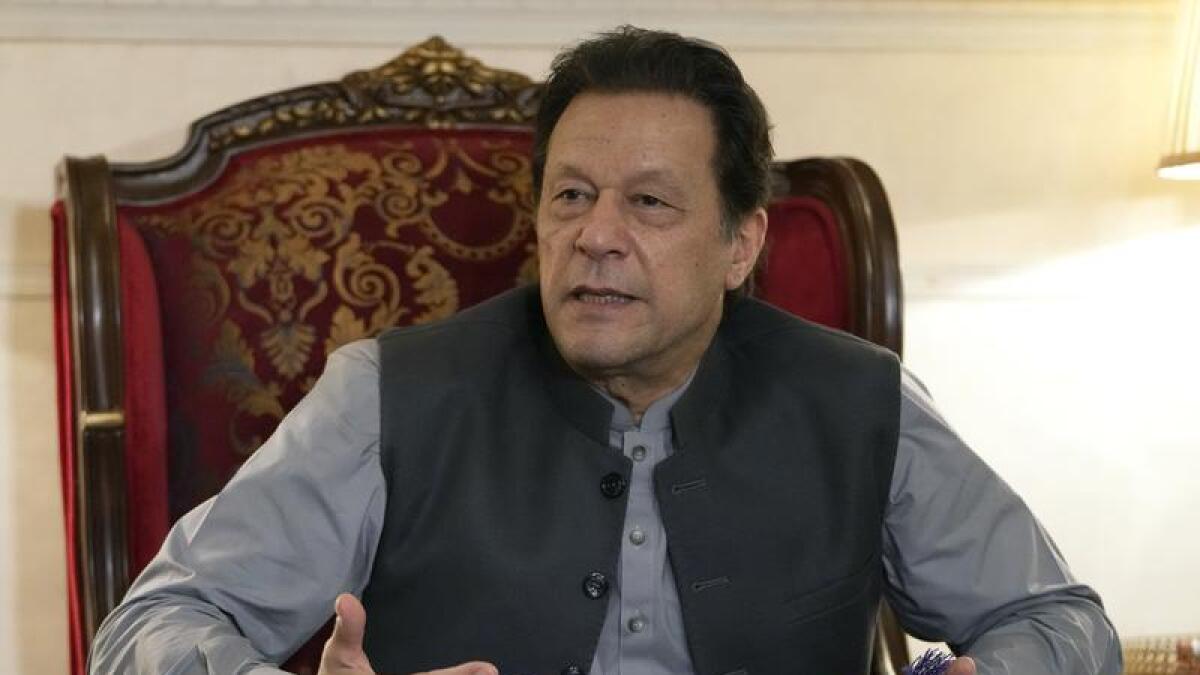Former Pakistani Prime Minister Imran Khan Arrested And Sentenced To Jail On Corruption Charges
Former Pakistani Prime Minister Imran Khan arrested at his home in Lahore after a court found him guilty of corruption and sentenced him to three years in jail.
Author:Suleman ShahReviewer:Han JuAug 07, 202310.4K Shares616.8K Views

Former Pakistani Prime Minister Imran Khan arrestedat his home in Lahore after a court found him guilty of corruption and sentenced him to three years in jail.
The verdict has far-reaching implications, potentially barring Khan from participating in upcoming elections later this year.
Corruption Conviction And Arrest
The 70-year-old former international cricket star has faced a series of court cases that he claims are politically motivated since his removal from power in a vote of no confidence last year.
The court found Khan guilty of illegally selling state gifts, resulting in his conviction and subsequent arrest. This development comes after Khan had long warned that he would be arrested to prevent his participation in the upcoming elections.
“„He has been found guilty of corrupt practices by hiding the benefits he accrued from national exchequer wilfully and intentionally.- Court verdict
“„He cheated while providing information about gifts he obtained from Toshakhana (the state gift repository) which later proved to be false and inaccurate.- Court verdict
Conviction of a criminal offense in Pakistan typically results in disqualification from contesting elections or holding office.
Khan's imprisonment raises questions about his political future and potential impact on the country's political landscape.
Legal experts suggest that his conviction could eliminate one of Prime Minister Shehbaz Sharif's major rivals in the forthcoming national election expected in November.

Pakistan’s Imran Khan arrested after court convicts him
Reaction And Call For Protests
In a video statement made before his arrest and posted on social media, Khan called for his supporters to protest peacefully against his imprisonment.
Despite images and mentions of Khan being prohibited from broadcast on TV channels, he remains popular among the public. Khan's arrest marks a continuation of the challenges he has faced in his political journey.
Khan's political party, Pakistan Tehreek-e-Insaf (PTI), has already taken steps to challenge the court decision. The arrest has prompted concerns about the fairness of the trial and the potential political motivations behind it.
Amid the arrest, Khan's deputy and former foreign minister, Shah Mahmood Qureshi, emphasized the party's commitment to pursuing legal and peaceful avenues to secure Khan's release.
Future Implications
Imran Khan's jailing has significant implications for Pakistan's political and electoral landscape.
As the country navigates through a period of economic and political uncertainty, Khan's arrest adds a new layer of complexity.
The situation also underscores the ongoing power dynamics between political leaders and the military in Pakistan.
Following his detention on Saturday, a video message Khan produced before his arrest was released to his X, previously Twitter, account, in which he called on his fans to protest.
“„My fellow Pakistanis, they will have arrested me and I’ll be in jail by the time this message reaches you. I have just one request and appeal, that you are not to sit silently at home.- Imran Khan, Former Pakistani Prime Minister
“„This is a war for justice, for your rights, for your freedom … chains don’t just fall off, they have to be broken. You must continue peaceful protest until you get your rights.- Imran Khan, Former Pakistani Prime Minister
Final Words
The arrest and conviction of former Prime Minister Imran Khan on corruption charges have set in motion a series of reactions and uncertainties within Pakistan's political sphere.
With Khan's political future hanging in the balance, the nation watches closely as events continue to unfold and shape the course of its upcoming elections and broader political landscape.

Suleman Shah
Author
Suleman Shah is a researcher and freelance writer. As a researcher, he has worked with MNS University of Agriculture, Multan (Pakistan) and Texas A & M University (USA). He regularly writes science articles and blogs for science news website immersse.com and open access publishers OA Publishing London and Scientific Times. He loves to keep himself updated on scientific developments and convert these developments into everyday language to update the readers about the developments in the scientific era. His primary research focus is Plant sciences, and he contributed to this field by publishing his research in scientific journals and presenting his work at many Conferences.
Shah graduated from the University of Agriculture Faisalabad (Pakistan) and started his professional carrier with Jaffer Agro Services and later with the Agriculture Department of the Government of Pakistan. His research interest compelled and attracted him to proceed with his carrier in Plant sciences research. So, he started his Ph.D. in Soil Science at MNS University of Agriculture Multan (Pakistan). Later, he started working as a visiting scholar with Texas A&M University (USA).
Shah’s experience with big Open Excess publishers like Springers, Frontiers, MDPI, etc., testified to his belief in Open Access as a barrier-removing mechanism between researchers and the readers of their research. Shah believes that Open Access is revolutionizing the publication process and benefitting research in all fields.

Han Ju
Reviewer
Hello! I'm Han Ju, the heart behind World Wide Journals. My life is a unique tapestry woven from the threads of news, spirituality, and science, enriched by melodies from my guitar. Raised amidst tales of the ancient and the arcane, I developed a keen eye for the stories that truly matter. Through my work, I seek to bridge the seen with the unseen, marrying the rigor of science with the depth of spirituality.
Each article at World Wide Journals is a piece of this ongoing quest, blending analysis with personal reflection. Whether exploring quantum frontiers or strumming chords under the stars, my aim is to inspire and provoke thought, inviting you into a world where every discovery is a note in the grand symphony of existence.
Welcome aboard this journey of insight and exploration, where curiosity leads and music guides.
Latest Articles
Popular Articles